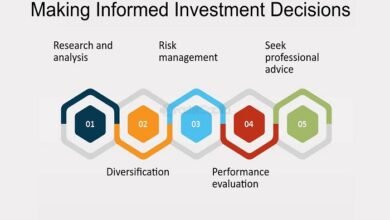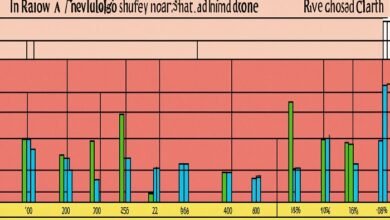Different Investment Options: A Comprehensive Guide

Introduction
Investing is a crucial part of financial planning, offering a way to grow wealth and achieve long-term financial goals. However, with so many different investment options available, it can be overwhelming to decide where to start. Whether you’re a novice investor or someone looking to diversify your portfolio, understanding different investment options is key to making informed decisions that align with your financial objectives.
The Basics of Different Investment Options
Before diving into the specifics, it’s essential to grasp the basics of different investment options. Investments generally fall into two main categories: equity investments and fixed-income investments. Equity investments include options like stocks and mutual funds, where you own a portion of a company or asset. Fixed-income investments, such as bonds, involve lending money to a company or government entity in exchange for interest payments. Understanding these fundamental types will help you navigate the different investment options available to you.
Stocks: The Classic Investment Option
Stocks are one of the most popular different investment options, representing ownership in a company. When you buy stocks, you become a shareholder and can potentially benefit from the company’s growth and profitability. Stocks are considered one of the riskier investment options because their value can fluctuate widely. However, they also offer the potential for high returns, making them an attractive choice for long-term investors looking to grow their wealth.
Bonds: A Safer Investment Option
Bonds are a more conservative investment option compared to stocks. When you purchase bonds, you are essentially lending money to a corporation or government, which agrees to pay you back with interest over a specified period. Bonds are considered safer than stocks because they offer regular interest payments and are less volatile. However, they also typically offer lower returns. For investors seeking stability and predictable income, bonds are one of the different investment options worth considering.
Mutual Funds: Diversification Made Easy
Mutual funds are another popular investment option, especially for those who prefer a diversified approach. A mutual fund pools money from multiple investors to purchase a diversified portfolio of stocks, bonds, or other securities. This investment option allows you to spread risk across various assets, reducing the impact of poor performance in any single investment. For those who want exposure to different investment options without the need to manage individual assets, mutual funds are an excellent choice.
Real Estate: A Tangible Investment Option
Real estate is a tangible and often lucrative investment option that involves purchasing property to generate income or appreciation. Real estate can be one of the most rewarding different investment options due to its potential for steady cash flow and long-term value appreciation. Whether through rental properties, commercial real estate, or real estate investment trusts (REITs), this option provides both income and growth potential. However, real estate requires significant capital and management, making it more complex than other investment options.
ETFs: A Flexible Investment Option
Exchange-Traded Funds (ETFs) are a flexible investment option that combines the diversification of mutual funds with the trading flexibility of stocks. ETFs track a specific index, sector, or commodity, and can be bought and sold on stock exchanges throughout the trading day. For investors looking for a low-cost, diversified, and easily accessible investment option, ETFs are one of the different investment options to consider.
Commodities: A Risky but Potentially Rewarding Investment Option
Commodities, such as gold, oil, and agricultural products, represent another category of different investment options. Investing in commodities involves buying physical goods or futures contracts that derive their value from these goods. Commodities can be highly volatile and are often influenced by geopolitical events and economic changes. However, they also offer the potential for significant returns, particularly during times of economic uncertainty. Commodities are best suited for experienced investors who understand the risks and market dynamics associated with this investment option.
Cryptocurrencies: The New-Age Investment Option
Cryptocurrencies have emerged as a new and highly speculative investment option in recent years. Digital currencies like Bitcoin and Ethereum offer the potential for massive returns but come with significant volatility and risk. Cryptocurrencies are one of the most different investment options available, appealing to tech-savvy investors and those willing to navigate an unregulated market. While this option is not for everyone, it represents a growing segment of the investment landscape.
Index Funds: A Low-Cost Investment Option
Index funds are a type of mutual fund or ETF that tracks a specific market index, such as the S&P 500. This investment option is popular for its simplicity, low costs, and consistent performance. By investing in an index fund, you gain exposure to a broad segment of the market, which can help reduce risk and deliver steady returns over time. Index funds are one of the different investment options ideal for passive investors who want to build wealth with minimal effort.
Peer-to-Peer Lending: An Alternative Investment Option
Peer-to-peer (P2P) lending is an alternative investment option that allows individuals to lend money directly to borrowers through online platforms. This option offers higher returns compared to traditional savings accounts or bonds, but it also comes with higher risk. P2P lending is one of the different investment options that can diversify your portfolio and provide steady income, but it’s crucial to understand the risks, including potential borrower defaults.
Choosing the Right Investment Option for You
With so many different investment options available, choosing the right one can be challenging. The best investment option for you depends on your financial goals, risk tolerance, time horizon, and investment knowledge. This section will guide you through a step-by-step process to evaluate different investment options and select the ones that align with your objectives.
Conclusion
In conclusion, understanding and utilizing different investment options is key to building a robust and diversified portfolio. By spreading your investments across various assets like stocks, bonds, real estate, and more, you can mitigate risks and maximize potential returns. Whether you’re a conservative investor or willing to take on more risk for higher rewards, there’s a range of different investment options to suit your needs. Take the time to research, consult with financial advisors if needed, and make informed decisions that will help you achieve your financial goals.
FAQs
1.What are the different investment options available?
Different investment options include stocks, bonds, mutual funds, ETFs, real estate, commodities, cryptocurrencies, index funds, and peer-to-peer lending.
2.Which investment option is the safest?
Bonds are generally considered one of the safest investment options, offering regular interest payments and lower volatility compared to stocks.
3.Can I invest in multiple different investment options?
Yes, diversifying across multiple different investment options can reduce risk and improve your portfolio’s overall performance.
4.What is the best investment option for beginners?
For beginners, mutual funds or index funds are often recommended as they provide diversification and are managed by professionals, making them less risky and easier to understand.
5.How do I choose the right investment option?
Choosing the right investment option depends on your financial goals, risk tolerance, and investment horizon. It’s important to evaluate each option based on these factors before making a decision.





